Just In
- 28 min ago

- 2 hrs ago

- 4 hrs ago

- 6 hrs ago

Don't Miss!
- Sports
 Arsenal vs Aston Villa: Mikel Arteta provides injury updates on Gunners trio ahead of PL Match
Arsenal vs Aston Villa: Mikel Arteta provides injury updates on Gunners trio ahead of PL Match - Movies
 BMCM & Maidaan Box Office Collection Day 3: Ajay’s Film Fails To Beat Akshay’s Film Despite 100% Growth
BMCM & Maidaan Box Office Collection Day 3: Ajay’s Film Fails To Beat Akshay’s Film Despite 100% Growth - News
 IPL 2024 LSG vs KKR: Lucknow Super Giants' Special Gesture For Mohun Bagan
IPL 2024 LSG vs KKR: Lucknow Super Giants' Special Gesture For Mohun Bagan - Education
 How Does AI Benefit the Job Search Process for Recruiting Agencies?
How Does AI Benefit the Job Search Process for Recruiting Agencies? - Finance
 Ashish Dhawan Portfolio Pharma Stock Gets Buy Call For Rs 1,266 TP; Do You Own?
Ashish Dhawan Portfolio Pharma Stock Gets Buy Call For Rs 1,266 TP; Do You Own? - Lifestyle
 Chaitra Navratri 2024 Day 6: Maa Katyayani Puja Vidhi, Vrat Katha, Mantra and Aarti Lyrics
Chaitra Navratri 2024 Day 6: Maa Katyayani Puja Vidhi, Vrat Katha, Mantra and Aarti Lyrics - Technology
 How to Add a Subscription Button on Instagram and Monetize Your Account
How to Add a Subscription Button on Instagram and Monetize Your Account - Travel
Maximise Your First Indian Adventure With These Travel Tips
GST Effect: Here Is Why The Government Has Increased Tax Rates For Hybrids Under GST
The GST scheme has been criticised for imposing high taxes on Hybrids. Are the critics right?
India has just witnessed the opening of a new chapter in the economy with a new taxation scheme coming into place. The Goods and Service Tax (GST) system of taxation, an economic reform of sorts, has been rolled out from starting today, 1st July 2017. The new tax rates will do away with Excise duties and VAT and replace it with one single tax slab and an additional cess.
Brief
on
tax
slabs:
The
GST
system
basically
has
four
taxation
rates
for
everything
that
is
taxable
in
the
country
-
5,
12,
18
and
28
percent.
Cars,
as
a
whole,
will
be
taxed
under
the
highest
tax
slab
of
28
percent,
but
when
divided
into
categories
based
on
length,
engine
capacity
and
powertrain
type,
will
attract
a
cess
over
and
above
the
28%
rate.
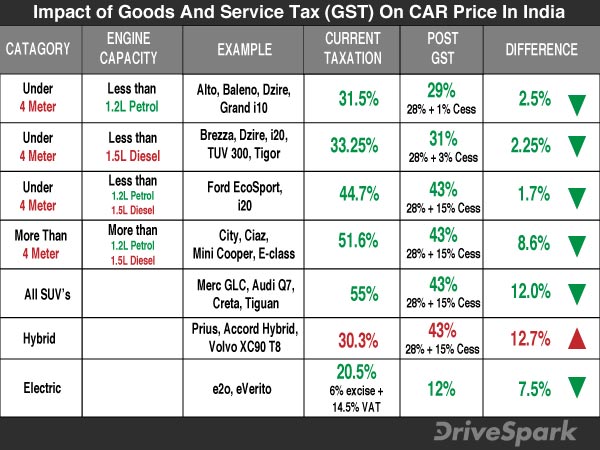
Cars measuring lesser than 4-metres see a decrease in taxation rates between 1.7 percent and 2.5 percent. Cars longer than 4-metres see a decrease in taxation between 8.6 and 12 percent. Electric cars see a decrease of 7.5 percent. So everything looks good for the automotive sector and car buyers right? Wrong!
There is one segment of cars which would be affected pretty badly. That is the Hybrid segment - the only segment which would see a price increase post implementation of GST. Does India not want to shift to greener mobility?

Global shift towards green mobility:
Car manufacturers, environmental agencies and most governments around the world have realised that green mobility is the future, and is encouraging the use of hybrids and electric cars in every possible manner.
In the American market, buyers of plug-in hybrids benefit from a tax credit ranging between $2,500 and $7,500 depending on the size of the battery in the car, and a few states in the U.S provide additional benefits to electric car owners. In the U.K, the government provides a grant of up to 5,000 GBP on electric cars and plug-in hybrids, alongside other benefits like exemption from congestion charges, etc.
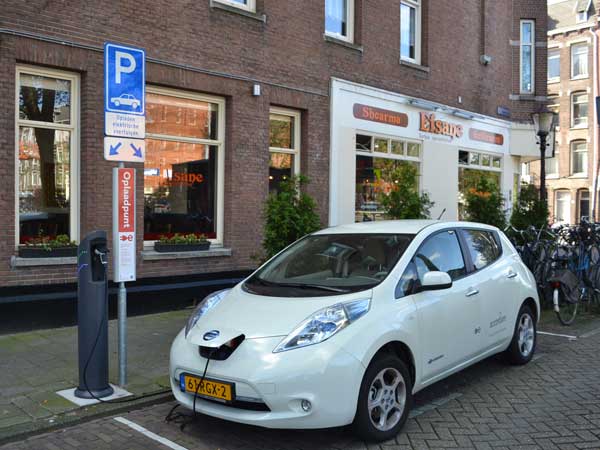
Why then is India discouraging hybrids? Or is it?
India on the other hand, judging by the taxes levied by GST on hybrid cars, seems to be discouraging car buyers from purchasing these green cars.
The BMW i8 is the Hybrid which would suffer the most, as the new 43 percent tax rate would see its price increased by nearly Rs 45 lakh. The Volvo XC 90 Hybrid would cost nearly Rs 17 lakh more than it does now. The Honda Accord Hybrid, Toyota Camry Hybrid and Toyota Prius would see an increase of Rs 8-10 lakh. Diesel variants of the Maruti Suzuki Ertiga and Ciaz equipped with SHVS tech will see a price increase of up to Rs 1.5 lakh.
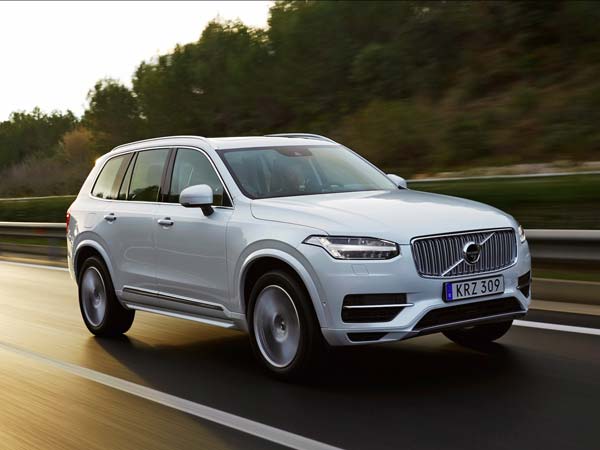
There are very few hybrids on sale in India right now, and all of them already sell in dismal numbers. Honda sold only one unit of the Accord in April and none in May.
Toyota sold only 113 units of the Camry in April and 119 in May, and it is safe to assume that the Hybrid variants of the Camry would have clocked just single digit sales. With the high tax rates being levied on these Hybrids now, sales can only be expected to go down.

If the high GST rates for hybrids leave you confused and wondering why the Indian government is not doing enough to promote green cars, let me remind you of 'FAME'.
Brief
on
FAME:
According
to
the
Press
Press
Information
Bureau,
'FAME
India
Scheme
[Faster
Adoption
and
Manufacturing
of
(Hybrid
&)
Electric
Vehicles
in
India]
was
implemented
with
effect
from
1st
April
2015,
with
the
objective
to
support
hybrid/electric
vehicles'
market
development
and
Manufacturing
eco-system.

The scheme has 4 focus areas, i.e. Technology development, Demand Creation, Pilot Projects and Charging Infrastructure. Phase-I of the scheme was implemented over a period of 2 years starting, 1st April 2015. The scheme was extended in March this year.
So the Indian government too had supported the sale of green cars for a while. But why are they stopping it now?
India's
direct
move
towards
electric
cars:
Well,
India
isn't
really
cutting
support
for
green
cars,
but
only
for
hybrids.
The
government
still
is
supporting
electric
cars
and
will
continue
to
incentivise
electric
cars.

While most countries slowly climb the ladder of green mobility by promoting hybrids first, then plug-in hybrids, and finally all-electric cars, it seems like the Indian government is thinking futuristically, which is a very good thing indeed.
The GST scheme imposes 7.5 percent lesser taxes on electric cars, making it very clear that the government is promoting electric cars. This move by the government deserves applause, as it takes India to the all-electric car party earlier than expected.
Countries
planning
to
ban
fossil
fuel-powered
cars:
There
are
quite
a
few
countries
planning
to
completely
switch
to
electric
cars.
Netherlands
and
Norway,
both
plan
to
completely
phase
out
cars
using
petrol/diesel/CNG/LPG
engines
by
2025.
Norway
started
its
journey
of
promoting
electric
cars
back
in
1990,
and
they
plan
to
go
completely
electric
by
2025.
It
took
this
European
country
35
years
to
do
this.
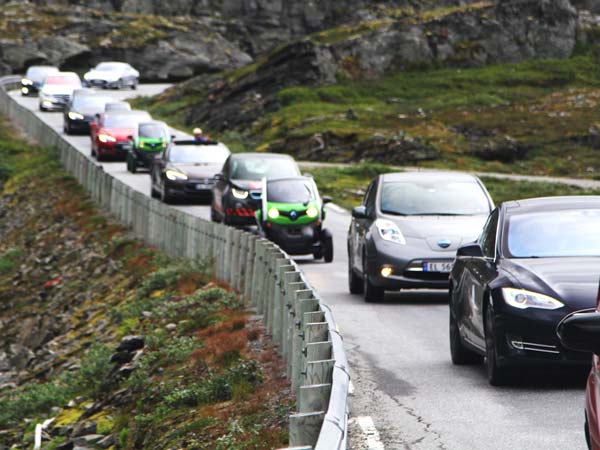
Norway is a country with a population of 5.19 million (51 lakhs), whereas India has a population of 1.3 billion (130 crores). If India wanted to do what Norway did, it would take a pretty long time. Now, we all know that the future of automobiles lies in electric cars, so India would need to make a start if it wanted to get there some day.
Indian
Government's
Plans:
The
Indian
government
had
earlier
this
year
revealed
plans
of
having
only
electric
cars
on
sale
by
2030.
While
this
is
indeed
a
good
plan
for
the
environment
and
the
electric
car
manufacturing
segment,
on
the
whole,
it
definitely
is
over-ambitious
when
one
considers
our
market
size
and
requirement.

The Indian government is going the extra mile to promote electric cars. In 2016, Indian Prime Minister Narendra Modi met Tesla CEO, Elon Musk at the company's Gigafactory and later, Indian Union Transport Minister Nitin Gadkari visited the same facility and met top officials of the company.
Mr. Gadkari even invited Tesla to set up a manufacturing plant in India and showed promise in providing land for the plant near any of the major ports of the country which would help Tesla with exports. He also hinted at the possibility of a Joint venture with an Indian manufacturer.
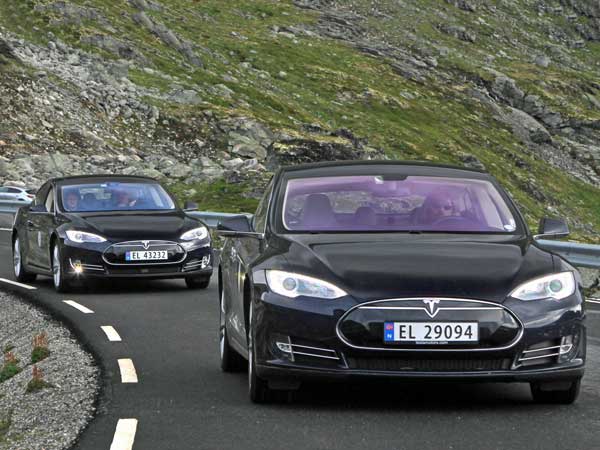
Tesla officials said it would be considered at the right time in the future and seems like they are indeed taking it seriously. Tesla has been in negotiations with the Indian government to relax import duties on their cars until a Tesla Gigafactory can be built in India.
Is
the
reduction
of
taxes
on
electric
cars
enough?
The
reduction
of
taxes
on
electric
cars
and
increase
in
taxes
on
hybrid
cars,
therefore,
seems
to
be
part
of
the
government's
plan
to
electrify
the
automotive
industry.
Industry
analysts
and
green
mobility
experts
though
feel
it
just
isn't
enough.
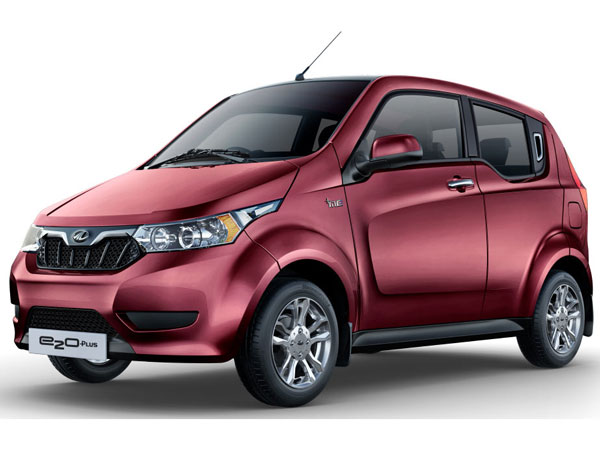
After the GST percentages came out last month, a few industry experts and analysts spoke up saying that GST was the perfect opportunity to promote electric vehicles. While the government has done that by reducing tax rates, the experts feel that the government should have imposed zero taxes on electric cars until the market has gained significant momentum.
Do
any
other
countries
have
zero
taxes
on
electric
cars?
The
Norwegian
government
had
introduced
such
incentives
right
from
the
time
they
began
their
campaign
for
electric
cars.
Back
in
1990,
they
had
exempted
electric
cars
from
purchase/import
taxes,
and
in
2001
they
further
incentivised
the
purchase
of
an
electric
car
by
exempting
it
from
the
25
percent
value
added
tax
(VAT)
on
purchase.
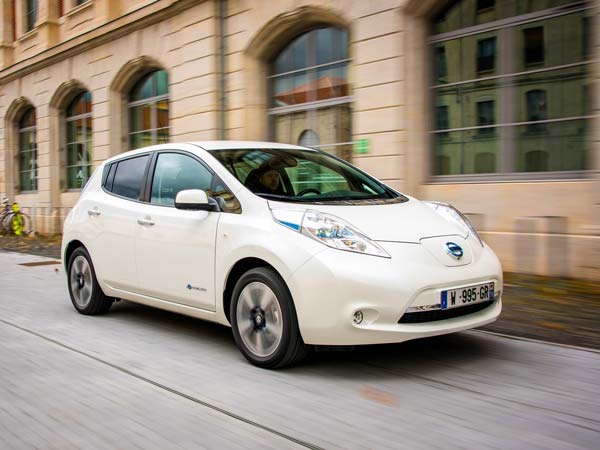
DriveSpark Thinks!
While the 43 percent GST on hybrids might kill the breed in India, it just might be an opportunity for manufacturers to step up the game and develop electric cars. There were reports of BMW seeking more clarity from the Indian government regarding GST on hybrids before considering their launch in India.
However, it might make more sense for BMW and other manufacturers now, to skip hybrids and bring in pure-electrics, like the BMW 3-series electric which is to be unveiled in September at Frankfurt, and of course the upcoming Tesla Model 3.
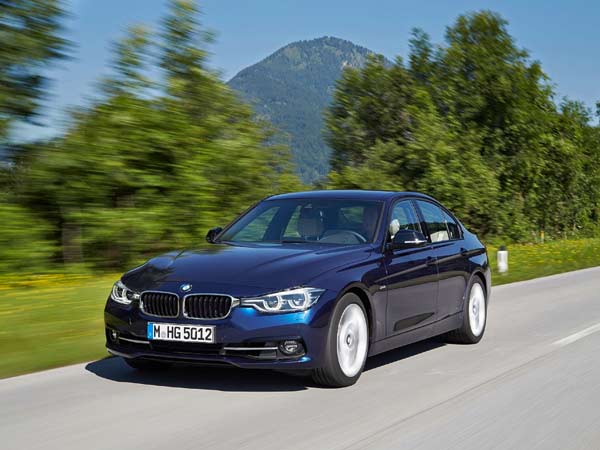
This move by the Indian government will surely bring in an influx of electric cars, in the near future. Until then though, it is the Mahindra e2o Plus, e-Verito and e-Supro 3, which would keep the electric car market going in India.



 Click it and Unblock the Notifications
Click it and Unblock the Notifications
















